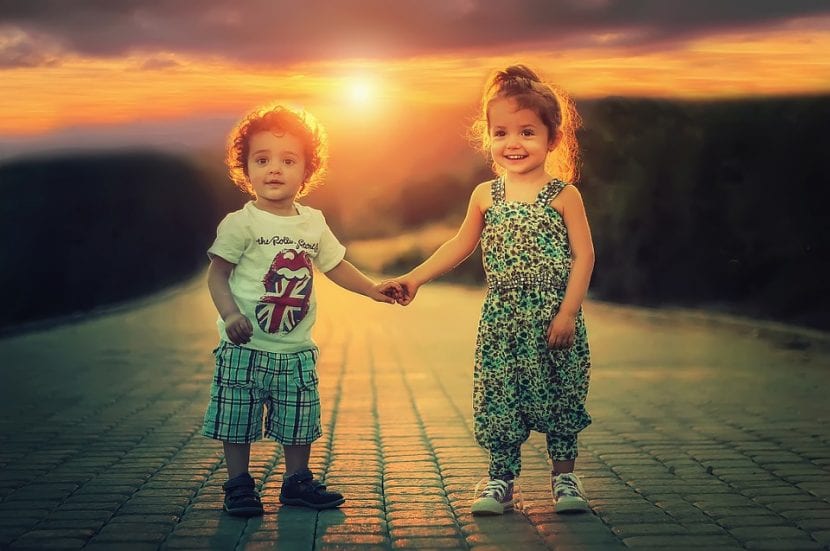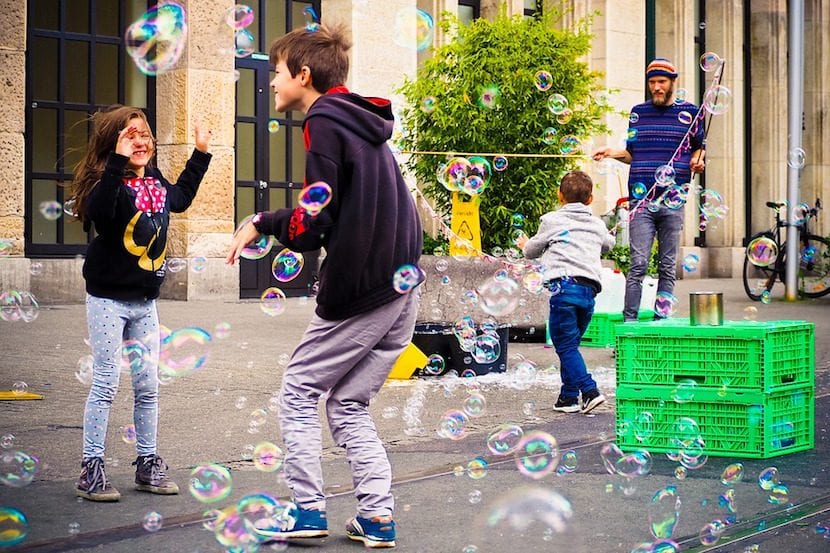
For children to establish friendships with other children is one of the main developmental tasks in early childhood. Friends, starting at a young age, help children to feel good about themselves, to help the child to adapt more easily to their surroundings and to begin to develop self-confidence. In short, having good friends and nurturing good relationships with others helps children have better self-esteem.
True friendships
True friendships can be seen between children who are as young as three or four years old. Children will be more prepared to maintain friendships, better than adults even! Never underestimate the value of those early friendships because for the little ones, they are really important. They help to develop emotionally and also on a social level. They learn to begin to manage the world around them and to better understand social norms.
Although it is sometimes difficult for children to always get along since it is normal and very common for there to be small fights (especially over toys, rules of games or blows). But these behaviors between little friends will always be a great learning opportunity. Conflicts arise because children do not yet have the skills to mediate disagreements. Adults play a very important role at these ages, they spend a great deal of time reminding children to 'use their words' instead of hitting and taking other children's toys without permission.
Making friends isn't always easy
From preschool through adolescence, friendships are a fundamental part of childhood. True friendships broaden children's horizons, build trust, and bring lasting joy. Childhood friendships are not just fun and games. Positive social relationships have profound developmental benefits for children. New research shows that childhood close friendships increase feelings of self-worth and also help children cope with stress.

But making and keeping friends isn't always easy. From shyness to fights between friends to peer pressure, friendships provide children with a constant stream of challenges that can baffle even the most proactive parent. It is necessary that you learn to help your children to better handle possible conflicts in friendships and that you can learn to keep good friends by their side.
Children between 0 and 5 years old
Although infants and toddlers can spend time with their friends, children do not develop true friendships, relationships based on mutual appreciation, trust, and give and take, until they are 4 or 5 years old.. For some children, These early friendships develop naturally when they begin nursery school, playgroups, and community interactions. Other children may doubt or even frighten children they don't know.
Above all, parents should avoid labels such as "shy" that can remain throughout life. Rather than labeling a child's withdrawn behavior, parents can help a child come out of his shell by organizing play hangouts with other children from time to time. When social situations cause stress, it will be necessary to redirect the child's attention to a toy or game, point out a familiar face from the crowd, and validate the child's feelings. If you want him to have friends at this age, you just have to point him to school or places where he can play with other children.
Children between 6 and 10 years old
Children at these ages need to build confidence. When children arrive at school, friendships become more important. High-quality friendships in nursery school are especially important to children. A new study from the University of Illinois shows that children with at least one good friend in kindergarten had fewer behavior problems in elementary school.

As friendships become more important, so do clashes between friends. The elementary years are the best time to argue with close friends. Around 6 or 7 years old, children begin to develop friendships based on trust, so conflicts can arise when a friend feels that trust has been broken: when a friend tells a secret, for example.
Fights between friends are a normal part of growing up. Parents can help children resolve disagreements by acknowledging children's feelings, problem solving, and modeling conflict resolution.
From 11 to 18 years
In pre-adolescence, children need to have good communication. Friends will be very important in their lives and they will want to spend all their time with them. But what if one of those friends is a bad influence on you. child? You must remember that although their friends are very important, if you know how to do it well, you have much more power than your children realize.

Teens want parental approval even if they don't say so. By avoiding negative judgments and hurtful criticism, parents open the door to an honest dialogue about a friend who may be questioned. You should ask teens and tweens what they think of this friend's actions, Sometimes the bad decisions of others can affect oneself.
Parents should avoid an authoritarian or confrontational approach. A child should never be forbidden to see another child, because then only the opposite effect is achieved. It is better to give the opportunity to meet that boy or girl and always keep the lines of communication open. You can offer your house for teenagers to hang out, so you can know what happens all the time, without realizing it. If something happens, take the opportunity to discuss and reflect on it with your teen.